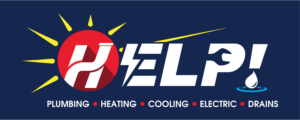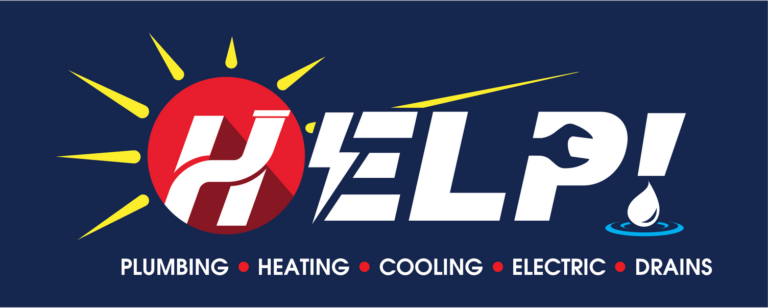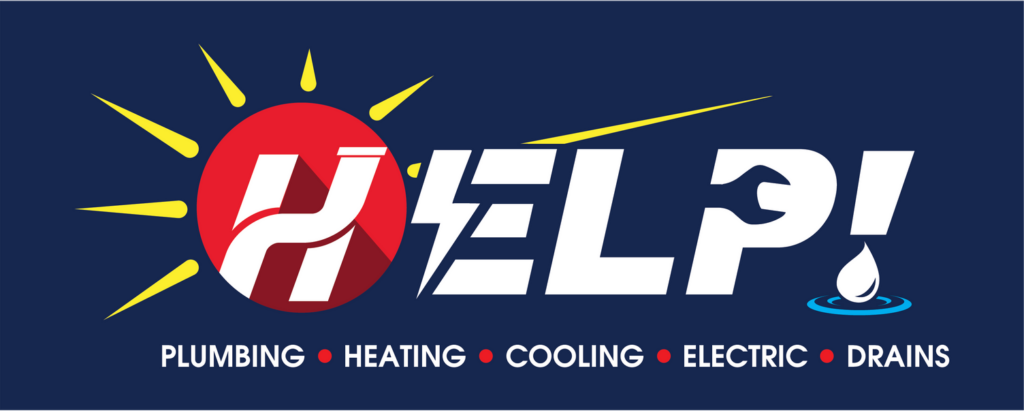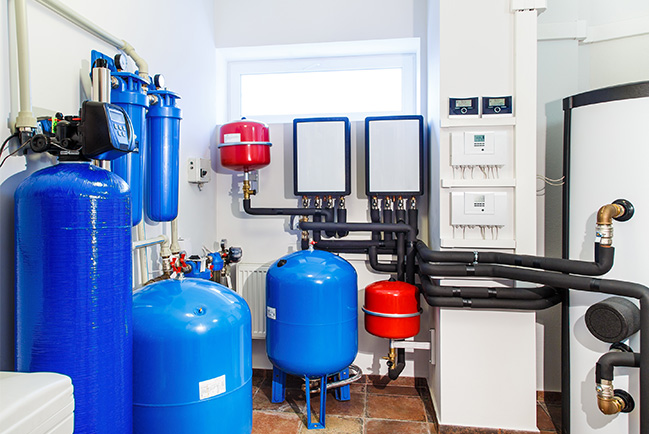
Private water wells supply water to over 13 million U.S. households that are far removed from municipal water supplies (U.S. EPA). Unfortunately, water from private wells or cisterns is not regulated by the federal or state government and has a higher risk of waterborne contaminants.
If you have a private well, you are responsible for well water management and the safety of your water. It is important to ensure safe, potable water through proper well water testing, treatment, and maintenance.
For your health and hygiene, speak with the professionals at HELP Plumbing, Heating, Cooling and Drains for information and resources to monitor and maintain your well. You want to make sure that the water coming into your home is free of contaminants. We offer whole-house water softeners, special cartridge filtration, and other water treatment solutions. We can help you decide which system best suits your needs.
What is well water? What is groundwater?
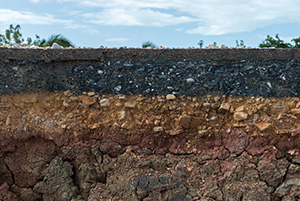
All private wells get their water from groundwater. Groundwater is water from rain or melting snow/ice that gets stored in the spaces between rocks, sand, gravel, and soil. It can stay underground for hundreds of thousands of years, or it can surface and fill rivers, lakes, springs, and other bodies of water. Groundwater can also be pumped from a well. According to the U.S. EPA, “about 50 percent of our municipal, domestic, and agricultural water supply is groundwater.”
How well water gets contaminated
Most well water doesn’t need much filtration if the screen and pump are well maintained. However, there are several ways a well can become contaminated.
Toxic materials can easily leach into the aquifer and pollute the groundwater near your well, or contaminated water can get into wells that were installed poorly or not properly maintained. Private well owners should be aware of any land-use practices nearby that could negatively affect the groundwater quality. This includes illegal dumping, pesticides, herbicides, fertilizers, and animal grazing and feeding operations.
Installing septic tanks too close to a well can also pollute your freshwater supply, especially if there’s a septic leak. Additionally, naturally occurring materials, such as iron and manganese, and runoff from urban areas can infiltrate and degrade the water supply.
Potential well water contaminants include:
- Microorganisms (such as bacteria, viruses, and parasites)
- Nitrate and nitrite (present in fertilizers, sewage, and animal waste)
- Heavy metals (such as arsenic, copper, lead, selenium, and many more)
- Organic chemicals (found in inks, dyes, paints, sealants, and more)
- Radionuclides (radioactive forms of uranium and radium)
- Fluoride (high fluoride content can lead to skeletal fluorosis, tooth discoloration, and/or pitting of teeth)
Buying a home with a private well
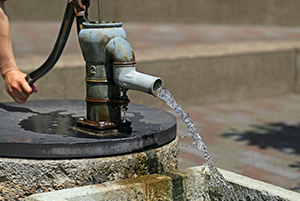
If you have recently bought a home with a well, or you are considering buying a home with a well, make sure there’s a detailed record of the well construction and maintenance supplied by the previous or current owners. Most mortgage companies require a water quality test and full disclosure of the results before closing on a home.
Once you determine the water quality and the condition of the well and its maintenance history, we can provide a water treatment system for your home to filter out common contaminants. If the well water is considered unsafe for drinking, you may need to think about other solutions. Call us any time if you have questions or would like to set up a consultation.
When should I test my home’s well water?
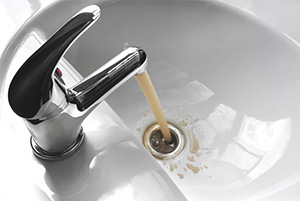
It’s recommended that you test your private well every year for total coliform bacteria, nitrates, total dissolved solids, and pH levels (U.S. EPA). Run additional tests if you suspect other contaminants. Consider more frequent water quality tests if there are young children or elderly adults in your household.
Test your well water immediately if:
- There are known problems with groundwater or drinking water in your area.
- Conditions near your well have changed significantly (i.e., flooding, land disturbances, and new construction or industrial activity).
- You replace or repair any part of your well system.
- You notice a change in your water quality (i.e., odor, color, taste).
Source: U.S. EPA
While some contaminants in your water can cause illness, others may only affect your quality of life, such as hard minerals that cause scaly residues and dry, irritated skin. Contact the experts at HELP Plumbing, Heating, Cooling and Drains to determine which substances you should consider testing for. We will send your water to a certified laboratory for testing. Some local health departments provide private well testing for free!
Water Treatment Systems for Well Water
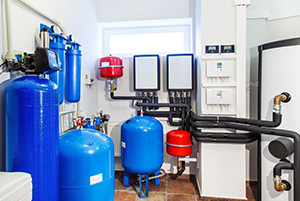
Once your water test results come back, you can see if the substance tested for exceeds primary or secondary drinking water standards. If you do have contaminants that exceed health standards, call your local water treatment expert or local public health department for specific next steps.
There are many different well water treatment options, such as disinfection, distillation, and filtration. If you have high bacteria concentrations, a disinfectant such as chlorine, ultraviolet light, or electronic radiation can act as a disinfectant. In extreme cases, you may need to find a new source of water or construct a new well.
Whether you need to remove specific contaminants, take extra precautions due to a compromised immune system, or improve the taste of drinking water, our highly trained technicians can find the right water treatment system for you.
Using the water test results, we can find a water treatment system that addresses your water quality concerns.
Common Household Water Treatment Systems
Depending on your needs, you may need a combination of water treatment systems.
Here are some of the most common types of household water treatment systems:
Filtration Systems – A device that removes contaminants by means of a physical barrier, biological and/or chemical process.
Water Softeners – A device that reduces the hardness of water by replacing calcium and magnesium ions with sodium or potassium ions.
Disinfection – A physical or chemical process that deactivates or kills microorganisms. Examples of disinfectants include chlorine, chlorine dioxide, ozone, UV light, and electronic radiation.
Distillation Systems – A process that includes boiling water and condensing the steam into a separate container to remove solid impurities.
We guarantee that the filters and treatment systems we install will do what they are supposed to do.
Options for Water Treatment: Point-of-Use vs. Point-of-Entry
Water treatment systems can be installed at point-of-use or point-of-entry. Point-of-use systems treat specific batches of water, such as the kitchen or bathroom sink. These include faucet filters and even water filter pitchers.
Point-of-entry systems are usually installed near the water meter or pressurized storage tank (well water) and treat most or all of the water entering the building.
You have the option of treating all the water that enters your home with a point-of-entry system or choose to treat water that comes out of just one tap.
Our plumbers and service team continuously update their knowledge of residential water filtration technology, which helps us install and service all the new products on the market. With our knowledge and experience, we’ll help you buy the perfect water treatment unit for your home.
Call the experts at HELP to recommend and install a water treatment system that ensures years of high-quality freshwater supply to your home.
Here are some well maintenance tips for preventing problems and maintaining healthy water quality:
- Install a locking well cap or sanitary seal to prevent unauthorized use of, or entry into, the well.
- Do not mix or use pesticides, fertilizers, herbicides, degreasers, fuels, or other pollutants near the well.
- Never dispose of wastes in dry or abandoned wells.
- Have your septic system inspected and pumped as often as your local health department recommends.
- Be cautious when working or mowing around your well to avoid damaging the wellhead or water distribution line.
- Check all visible parts of your well systems for problems each month.
- Test your water regularly.
- Keep accurate well records in a safe place.
- If you experience a flood, do not drink from the well or use for washing until a qualified contractor flushes and disinfects the system.
Source: NGWA
Additional Resources for Private Well Owners
- Well Water Information Based on Where You Live (U.S. Environmental Protection Agency)
- State Certified Drinking Water LaboratoriesExternal (U.S. Environmental Protection Agency)
- The Centers for Disease Control and Prevention also has a lot of information on private well maintenance, testing, treatment, and more.
Call HELP for Professional Water Treatment Systems
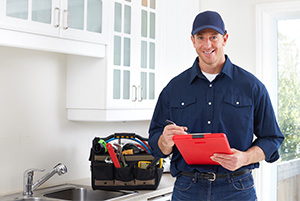
Impurities and contaminants in your water supply can lead to a number of health and comfort issues, including neurological disorders and reproductive problems. Whether your water supply comes from the city or a well, the plumbers at HELP can help you determine which water treatment system is right for your home.
Enroll in our HELP CLUB today to help reduce energy costs, keep your home up to code, and your HVAC system running at peak performance.
Contact HELP Plumbing, Heating, Cooling and Drains for professional water treatment advice and industry-leading customer service in Northern Kentucky and Greater Cincinnati.
